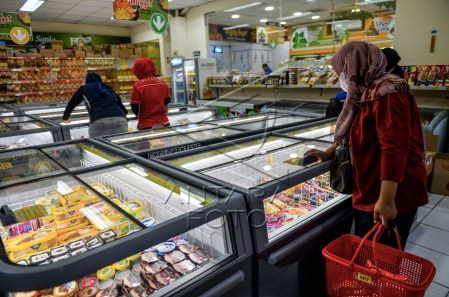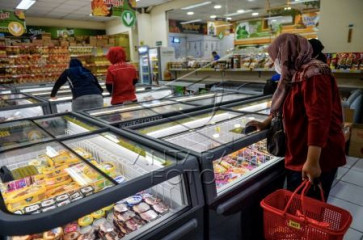Popular Reads
Top Results
Can't find what you're looking for?
View all search resultsPopular Reads
Top Results
Can't find what you're looking for?
View all search resultsTurning food waste into Indonesia’s opportunity for change
Millions of Indonesians remain food insecure while food waste accounts for nearly 8 percent of national greenhouse gas emissions.
Change text size
Gift Premium Articles
to Anyone
F
ood loss and waste (FLW) in Indonesia represents one of the most critical challenges to achieving national food security and environmental sustainability. With over 20 million tonnes of food wasted annually, the implications are profound: Millions of Indonesians remain food insecure while this waste accounts for nearly 8 percent of national greenhouse gas emissions. The dual crises of hunger and climate change intersect in food waste, necessitating a comprehensive and evidence-based approach to mitigation.
The economic, environmental and social costs of FLW in Indonesia are staggering. Each year, the country incurs losses estimated between Rp 213 trillion (US$13.14 billion) and Rp 551 trillion due to food waste representing 4 to 5 percent of gross domestic product (GDP). These figures underscore the inefficiencies in resource utilization, including wasted water, energy and labor along the food production and distribution chain.
Environmentally, food waste contributes disproportionately to greenhouse gas emissions. Decomposition of food waste in landfills generates methane, a greenhouse gas with a global warming potential significantly higher than carbon dioxide. Methane from food waste accounts for 77 percent of greenhouse gas emissions from the Indonesian food system. Such emissions exacerbate climate challenges, highlighting the urgency of integrating food waste reduction into national climate strategies.
Socially, the existence of food waste amid widespread hunger reflects inequities in food distribution systems. While millions face chronic food insecurity, millions of tonnes of safe and edible food are discarded, undermining efforts to achieve the United Nations Sustainable Development Goals (SDGs), including SDG 2 (Zero Hunger) and SDG 12 (Responsible Consumption and Production).
Consumer-level behaviors are significant contributors to food waste in Indonesia, accounting for 55 percent of total waste. Factors such as over-purchasing, improper storage and lack of meal planning exacerbate waste at the household level. Additionally, cultural norms that favor large portion sizes and a reluctance to consume leftovers contribute to this issue.
Systemic inefficiencies also play a critical role. Weak infrastructure, including inadequate storage and transportation systems, leads to spoilage of perishable goods such as fruits, vegetables and dairy products. These losses occur throughout the supply chain, compounding the waste problem and its associated impacts. Beyond infrastructure, inconsistent policy enforcement exacerbates the problem, leaving critical gaps in monitoring and managing food waste across sectors.
Addressing food waste in Indonesia requires a multidimensional strategy encompassing policy, technology and behavioral change.



















